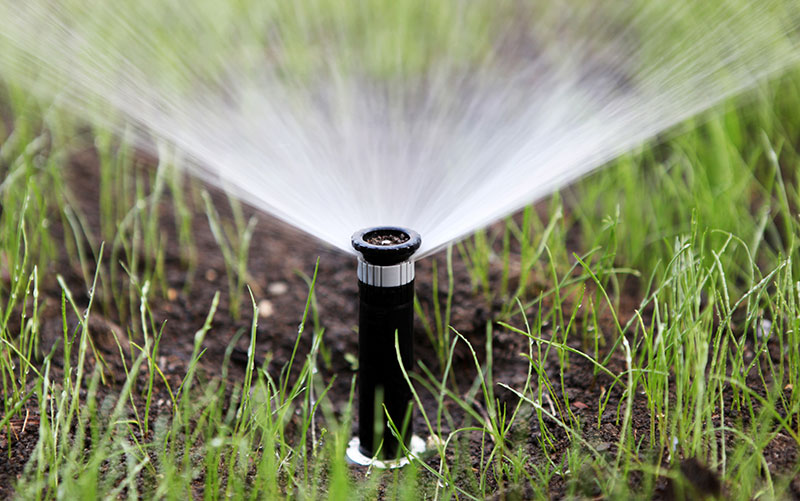 A lush, green lawn doesn’t happen by accident. It’s the result of careful planning and maintenance, and at the heart of this effort is a reliable sprinkler system. However, like any complex system, sprinklers can develop issues over time, with one of the most common problems being malfunctioning or damaged sprinkler heads. When confronted with such issues, homeowners are faced with a decision: should they repair the problematic sprinkler heads, or is it time to replace them altogether? In this article, we’ll explore the factors to consider when dealing with sprinkler head problems, helping you make an informed choice.
A lush, green lawn doesn’t happen by accident. It’s the result of careful planning and maintenance, and at the heart of this effort is a reliable sprinkler system. However, like any complex system, sprinklers can develop issues over time, with one of the most common problems being malfunctioning or damaged sprinkler heads. When confronted with such issues, homeowners are faced with a decision: should they repair the problematic sprinkler heads, or is it time to replace them altogether? In this article, we’ll explore the factors to consider when dealing with sprinkler head problems, helping you make an informed choice.
Assessing the Damage
The first step in deciding whether to repair or replace a sprinkler head is to assess the extent of the damage. Here are some common issues to look for:
1. Clogging:
If a sprinkler head is clogged with dirt, debris, or mineral deposits, it can often be cleaned and restored to its full functionality.
2. Broken Nozzles:
A broken nozzle is a common problem, and it’s usually a straightforward fix. Replacing the nozzle can restore the proper spray pattern.
3. Leaks:
Leaks at the base of a sprinkler head can sometimes be repaired by tightening the connection or replacing a damaged seal. However, if the leak is due to cracks in the head itself, replacement may be necessary.
4. Poor Spray Patterns:
If a sprinkler head isn’t distributing water evenly, it might need adjustment or cleaning. In some cases, a new nozzle or sprinkler head may be needed to correct the pattern.
5. Physical Damage:
If a sprinkler head has been physically damaged, such as by lawnmower blades, it may need replacement, especially if the damage is extensive.
Factors to Consider
Once you’ve assessed the damage, several factors should influence your decision between repair and replacement:
1. Age of the System:
Consider the overall age of your sprinkler system. If it’s relatively new, finding replacement parts and repairing individual components might be more straightforward. However, if the system is old and multiple heads are failing, it might be time for a complete replacement.
2. Cost of Repairs:
Compare the cost of repairs to the cost of a new sprinkler head or even a complete replacement. If repairs are extensive and expensive, it might make more financial sense to invest in a new, more efficient system.
3. Efficiency and Water Conservation:
Newer sprinkler heads are often designed to be more water-efficient, which can lead to cost savings in the long run. If water conservation is a priority, upgrading to newer heads might be beneficial.
4. Compatibility:
Consider whether the replacement parts are compatible with your existing system. If your system is older, finding compatible parts might become challenging.
5. Overall System Health:
Think about the health of your entire sprinkler system. If multiple components are failing or showing signs of wear, it might be more practical to replace the entire system to ensure consistent performance.
6. Long-Term Goals:
Consider your long-term landscaping goals. If you plan to make significant changes to your landscape or expand your irrigation needs, a new system might be better suited to your future needs.
Consulting a Professional
 Ultimately, the decision to repair or replace a sprinkler head should be made after a thorough assessment of the damage and careful consideration of the factors mentioned above. It’s often advisable to consult with a professional sprinkler specialist who can provide expert guidance based on your specific situation. They can assess your system, provide cost estimates, and recommend the most cost-effective and water-efficient solution.
Ultimately, the decision to repair or replace a sprinkler head should be made after a thorough assessment of the damage and careful consideration of the factors mentioned above. It’s often advisable to consult with a professional sprinkler specialist who can provide expert guidance based on your specific situation. They can assess your system, provide cost estimates, and recommend the most cost-effective and water-efficient solution.
In conclusion, dealing with sprinkler head issues requires a thoughtful approach. While repairs can often resolve minor problems, a more extensive issue or an aging system may warrant replacement. The key is to strike a balance between short-term cost savings and long-term efficiency and effectiveness. By making informed decisions, you can keep your lawn green and healthy while conserving water and minimizing maintenance headaches.